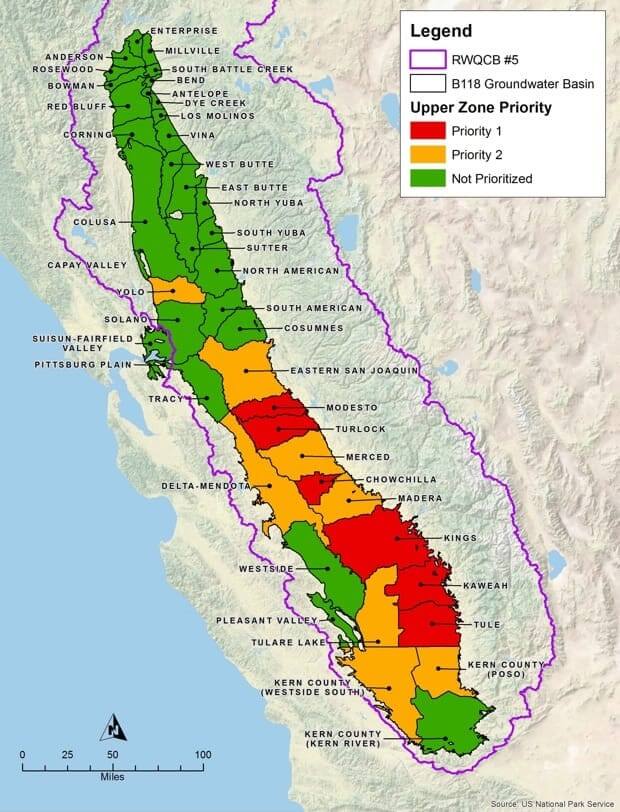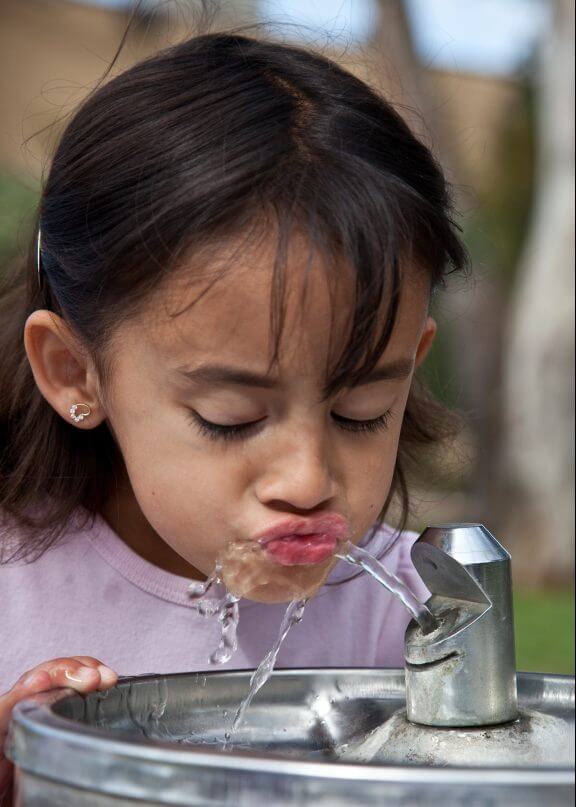As part of the State of California’s efforts to ensure safe drinking water, the Central Valley Regional Water Quality Control Board will begin to implement the CV-SALTS program this summer by sending Notices to Comply (Notices) to various dischargers in parts of the San Joaquin Valley, including owners and operators of irrigated crop land, dairies, ranchers, poultry producers, food processors, wineries and municipalities in the Kaweah, Turlock, Chowchilla, Tule, Modesto and Kings sub-basins (shown in red on map). The Notices will require Nitrate Control Programs as part of the recently adopted CV-SALTS program to address historical nitrate problems through either 1) an individual permit or 2) by joining a Management Zone. To better understand this new program, we recommend reading the new Nitrate Management Control Program Pamphlet and the CV-SALTS website.
With respect to the Sacramento Valley, we expect similar Notices from the Regional Board starting in late 2022 (through late 2024) for Priority 2 Groundwater Basins, which includes parts of Yolo County. Growers throughout the Sacramento Valley are already preparing nitrate management plans as part of the Irrigated Lands Regulatory Program. In high vulnerability areas, these plans are aggregated and submitted as a summary to the Regional Board. The CV-SALTS program is now adding another layer of scrutiny to areas with known nitrates in groundwater, as shown in the map below.

In Yolo County, there has been a concerted effort with respect to nitrates. The Woodland-Davis Clean Water Agency is now providing cities with surface water from the Sacramento River, while the rural leaders are working to address nitrate issues, including the establishment of a Management Zone and how to best comply with CV-SALTS requirements. There are also significant efforts within California agriculture to better understand nitrate management and how to reduce the leaching of nitrates to valuable groundwater resources.

The NCWA Board of Directors in its specific actions to implement the 2020 priorities will continue work to ensure access to safe drinking water. One action will be to convene meetings of the North State Drinking Water Solutions Network as a forum for interested parties to share information and coordinate efforts to ensure access to safe drinking water for all communities in the Sacramento River Basin. Areas of focus will include opportunities created by the State Water Board’s new Safe and Affordable Funding for Equity and Resilience (SAFER) program and the Safe and Affordable Drinking Water Fund created by SB 200 (2019). The establishment of this fund represented a significant milestone in continued progress toward realizing safe, clean, affordable and accessible drinking water under the “human right to water” through the creation of a $130 million annual funding source to assist in these efforts. NCWA will also advance comprehensive approaches to improve and protect multiple benefits of water through the work of the Sacramento Valley Water Quality Coalition working in partnership with the California Rice Commission.



